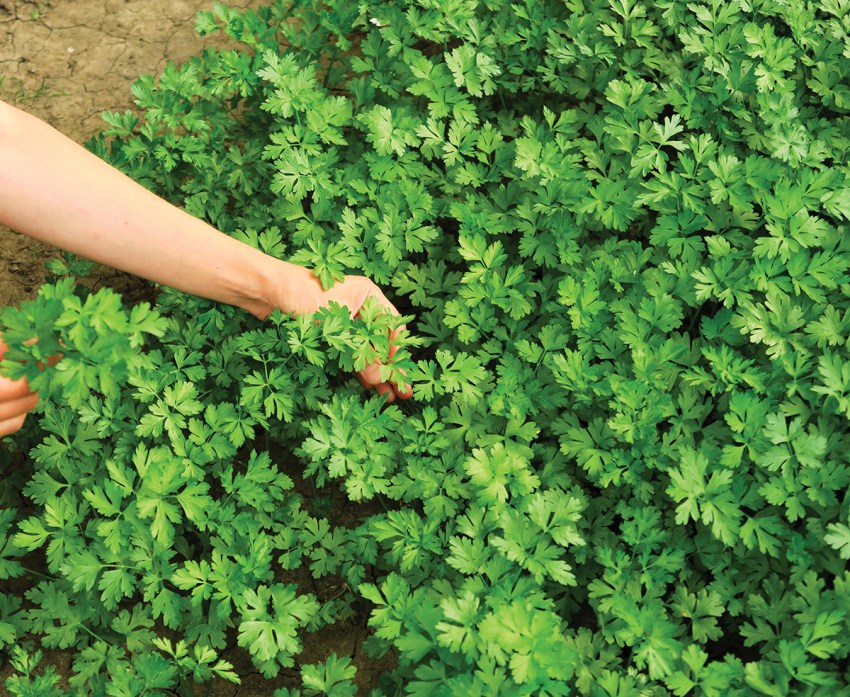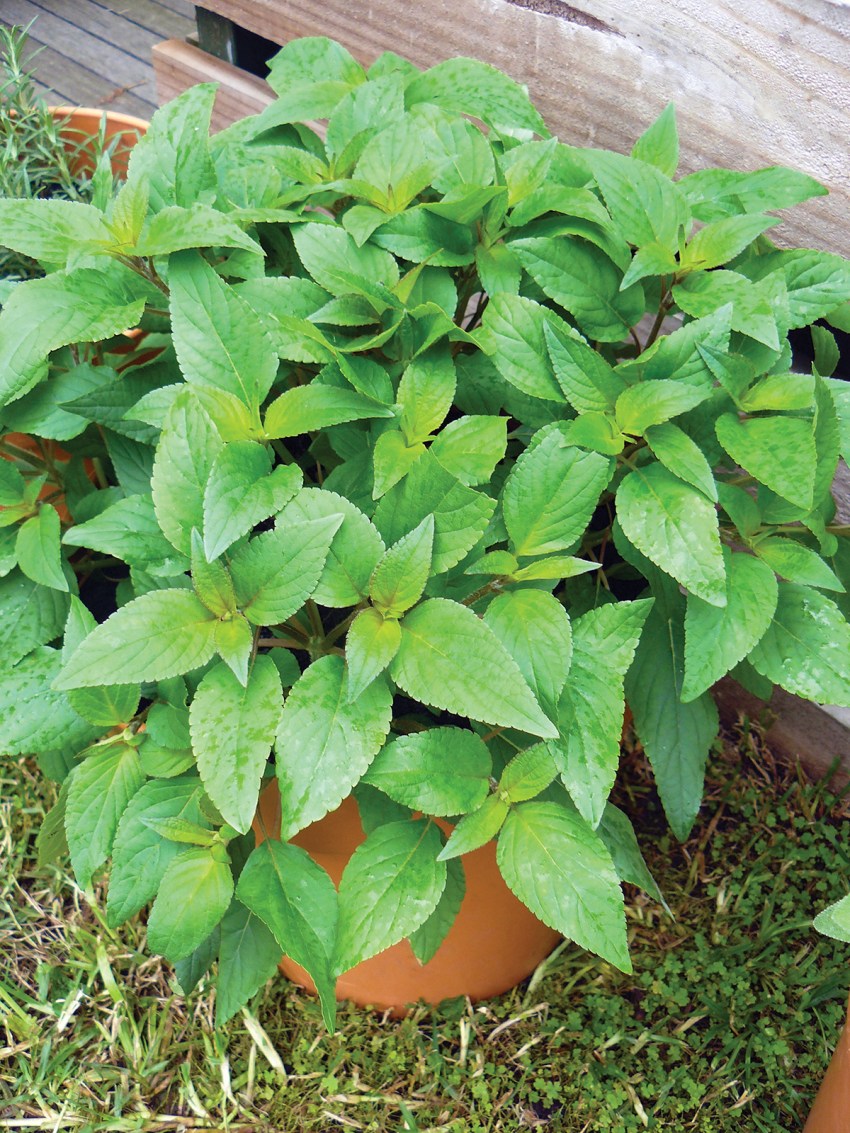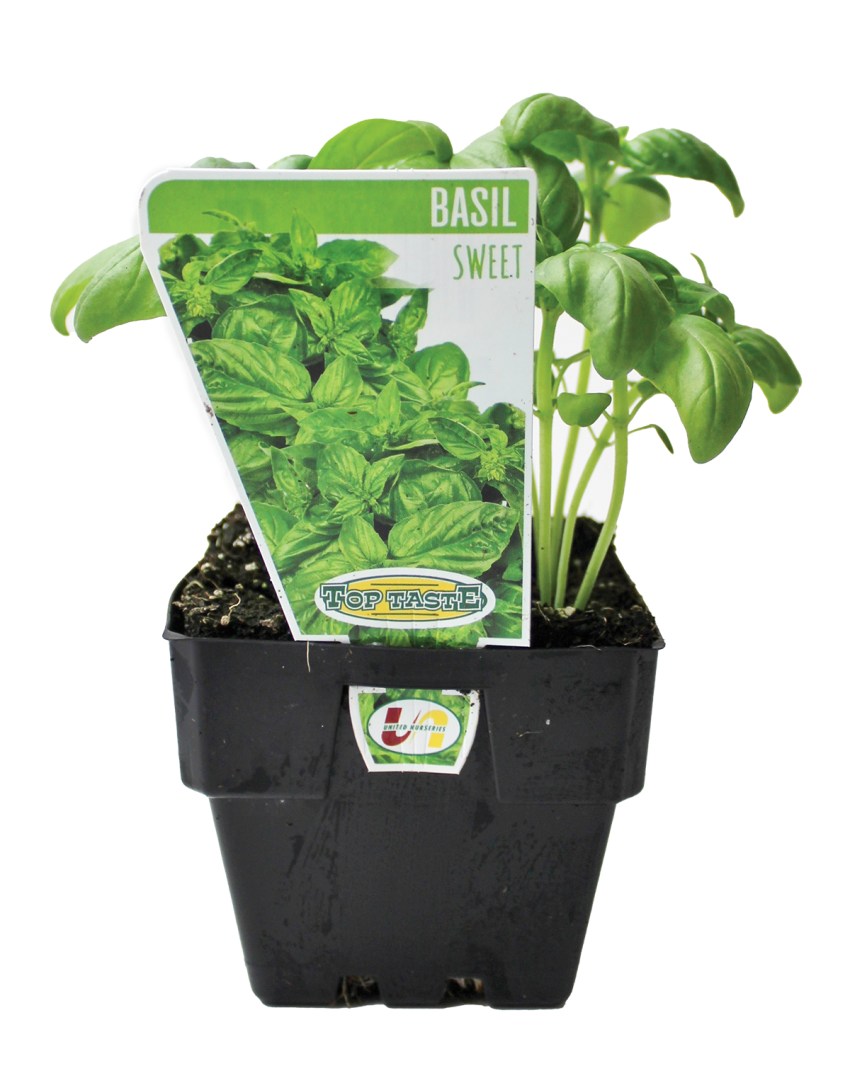Cassie Stoneham from United Nurseries shares her guide to growing herbs – and all the wonderful benefits they bring to everyday life.
From vegetable patches to formal gardens, from hanging baskets to pots sitting on windowsills, there is no place in a garden or in a container (with a hole at the bottom for water to drain) where herbs cannot be grown. So, to help you in your quest to bring the sights and smells and tastes of delightful herbs into your patch – whatever that may look like – here is my definitive guide to growing them.
Why should I grow herbs?
They are easy to grow – Herbs are great for beginners to expert gardeners. If you are new to gardening, then herbs are one of the easiest plants to grow. There are also some tricky ones to give even the expert gardeners
a challenge.
Family time – Get the kids off the electronics and into the garden. It is outside time that children of any age can enjoy.

No space, no problem – Herbs can be grown indoors and outdoors, as well as in pots for people who live in a rental and can then take with them when moving house.
Plants can be used multiple times – Compared with fresh herbs bought in a supermarket you can pick off the amount you need and these plants can be used time and time again.
Convenience – Growing your own herbs means you don’t have to drive to the shop to be able to flavour your meals and you have the convenience of already having them at home at a time when you need them.

Fresh and fragrant – Homegrown herbs offer superior taste and fragrance compared with store-brought herbs. Also, they will always be fresh as you can cut the amount you require off the plant when you are about to use them.
Most herbs can be grown all year round – Basil is one of the herbs that is affected by colder weather, but luckily the solution for that is to use mint basil, which can be grown in the cooler winter months and smells as if it’s the real thing.
Cost effective – With the higher cost of living lately, you can save money over the life of the plant instead of buying fresh herbs every time you would like to use them.
Wellbeing – Gardening provides exercise and is known to tone muscles. Gardening can also be very calming and, in turn, reduce anxiety and stress.

Herbs can be used for:
Medicinal /healing/herbal properties – Aloe is good for treating sunburn, ginger is a known anti-nausea treatment and rosemary improves digestion.
Aromatherapy/fragrance – Herbs such as lavender, chamomile, peppermint and rosemary have a wonderful scent and can be used in cosmetics and oils. The scent of herbs can lift your mood.
Freshen and cleanse the air – Herbs grown inside, or used in essential oils, can cleanse the air in your home. You can also use herbs in a bouquet that can freshen up the air.

Refreshing drinks – Popular herbs for use in teas, cocktails and smoothies include chamomile, peppermint, ginger and lavender. You can experiment with different types of herbs such as mint chocolate or verbena lemon.
Cooking – Add flavour to your meals by elevating the taste of dishes. Asian, Mediterranean and Middle Eastern cuisines are just a few that use multiple herbs.
Gardening – Flowering lavender, rosemary, thyme and chives attract bees to the garden to help pollinate other plants.

Subscribe for updates
Aesthetic appearance – Use herbs as hedges. In some formal gardens lavender or rosemary make good hedges.
Health and nutritional benefits – Basil, oregano, thyme and rosemary are rich in antioxidants and are an essential source of vitamins and minerals beneficial to overall health.
Sustainable and eco-friendly – Growing your own herbs instead of buying them in store helps reduce your “food miles”. Also, it reduces your carbon footprint due to the associated packaging and you are also in control of what pesticides and herbicides are used on the plants.
Fresh Herbs – Eat fresh in salads or as a garnish on dishes.

Cultural uses – In some cultures, herbs can be very important and a part of everyday life. For example, in Chinese medicine.
Share and connect – Either swap or gift a bunch of herbs with neighbours, friends or family members.
Companion planting – This is when two plants are planted next to each other that will benefit each other. For example, when you plant basil next to your tomatoes, it will enhance the flavour of the tomato and repel pests. Chives planted next to roses will also deter aphids from your roses.
Great for Pets – Cat grass is a herb that can boost vitamin levels and help with digestion for your furry friend.
Pests – Herbs such as citronella, lemon thyme and basil are natural mosquito fighters.

How do I start?
A lot of information about growing herbs is available online and your local garden store will be able to answer any questions you may have. My suggestion would be to work out which herbs are going to be best for your patch before you go shopping.
Things to consider include how often you’ll be picking the herbs, how much growing space you have available and what sort of conditions you have in your garden. Buying herbs in an advanced form (instead of seed), such as in a 100mm pot, is a great way to have a herb garden ready in a short time, because some seed varieties can take a long time to germinate.
Get planting … you won’t regret it. And your family will thank you for it.
This article first appeared in the Winter 2024 issue of SALIFE Gardens & Outdoor Living magazine.





